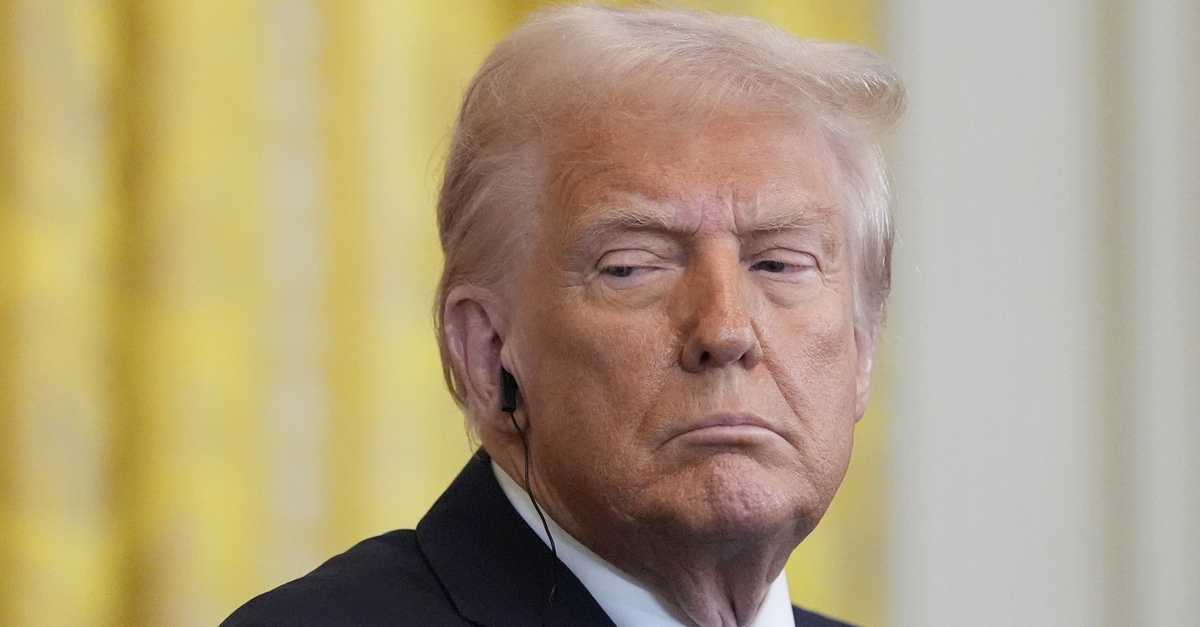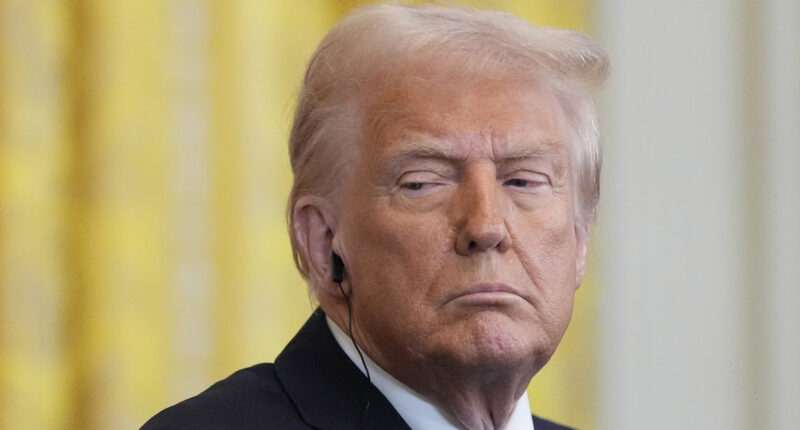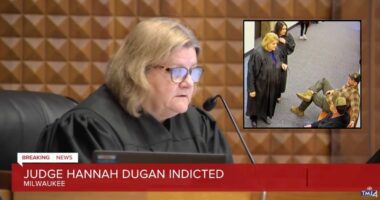
President Donald Trump is seen here listening during a news conference with Japanese Prime Minister Shigeru Ishiba at the White House. The event took place on February 7, 2025, in Washington (AP Photo/Alex Brandon).
The Trump administration recently intensified its criticism towards the judiciary by accusing a federal judge of overstepping boundaries and violating the principle of separation of powers. This accusation arose after the judge blocked an executive order that was aimed at the law firm Jenner & Block.
Attorney General Pam Bondi and Office of Management and Budget (OMB) Director Russell Vought strongly criticized U.S. District Judge John D. Bates. The critique came in the form of a memorandum that Bates himself had instructed the administration to distribute to agency officials. The memo informed them about a temporary restraining order (TRO) that put a hold on the enforcement and execution of President Trump’s executive order.
Remaining defiant in the face of Bates’ order, Bondi and Russell begin the three-paragraph memo by asserting that the judge does not have the authority to block President Donald Trump’s executive order or to direct the administration to write the memo.
“On March 28, 2025, an unelected district court yet again invaded the policymaking and free speech prerogatives of the executive branch, including by requiring the Attorney General and the OMB Director to pen a letter to the head of every executive department and agency,” the document states. “Local district judges lack this authority, and the Supreme Court should swiftly constrain these judges’ blatant overstepping of the judicial power.”
Trump on March 25, 2025, signed an Executive Order entitled “Addressing Risks from Jenner & Block” which says the Chicago-based national law firm has “abandoned the profession’s highest ideals, condoned partisan ‘lawfare,’ and abused its pro bono practice to engage in activities that undermine justice and the interests of the United States.”
The order is in line with a series of similar attempts to curtail the power and access of Big Law in the federal government — or at least such firms whose attorneys have worked for clients the Trump administration deems “detrimental to critical American interests.”
The firm sued the administration and Bates, a George W. Bush appointee, issued a TRO enjoining portions of the executive order that directed agency heads to terminate any contracts with the firm, pulling security clearance from its employees, and limiting the firm’s access to government buildings. Bates also prohibited the government from relying on the portion of Trump’s order that accuses Jenner & Block of being a threat to national security, engaging in race and sex discrimination, and obstructing justice.
However, that did not stop Bondi and Russell from summarizing and reiterating the allegations against the law firm.
“In this particular case, a local district judge has mandated that the Attorney General and OMB Director personally send the below notification about Jenner & Block, LLP, a law firm committed to the weaponization of justice, discrimination on the basis of race, radical gender ideology, and other anti-American pursuits,” the memo states.
In what is likely to be viewed as an intentional effort to provoke the judge, the memo also seemingly attempts to skirt the court’s order, at least in part, by leaving the door open for agencies to continue blacklisting Jenner & Block.
“Of course, as noted in the court order, agencies are permitted to carry on their ordinary course of business which carries with it the authority to decide with whom to work,” Bondi and Russell wrote. “As it remains the Executive Branch’s position that Executive Order 14246 was necessary policy the government reserves the right to take all necessary and legal actions regarding ‘lawfare,’ national security concerns, and discriminatory practices involving Jenner & Block.”
Love true crime? Sign up for our newsletter, The Law&Crime Docket, to get the latest real-life crime stories delivered right to your inbox.











